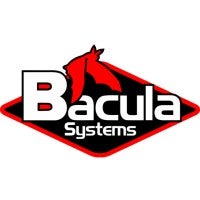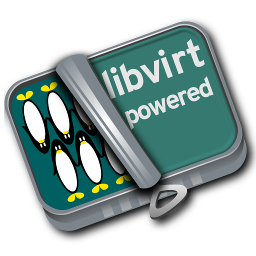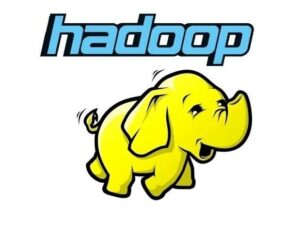These 64 Open Source Storage Projects help you create a NAS/SAN device, set up cloud storage, backup your system & more. Click here now.


As data storage needs continue to grow and many organizations move toward software-defined infrastructure, more enterprises are using open source software to meet some of their storage needs. Projects like Hadoop and Ceph have become very common in large enterprises.
These applications can make it possible to set up your own NAS or SAN device, back up data, or manage large-scale computing using industry-standard hardware without paying the high prices vendors charge for dedicated storage appliances. Open source software also offers users the option to set up a cloud storage solution where they have control over security and privacy, and it can also offer affordable options for backup and recovery.
The following selections cover a wide range of storage software, highlighting open source solutions that particularly stand out.
Best open source storage software solutions
 Red Hat’s open source Ceph Storage is designed for object, block, and file types. It’s software-defined storage that can store both structured and unstructured data, an advantage for enterprises that need to store both on one platform.
Red Hat’s open source Ceph Storage is designed for object, block, and file types. It’s software-defined storage that can store both structured and unstructured data, an advantage for enterprises that need to store both on one platform.
Ceph is a good choice for organizations that already use Red Hat solutions. It’s a suitable storage solution if your business needs to store both structured and unstructured data. And because Ceph runs on commodity hardware, it can help storage teams avoid vendor lockin.
If your business has other storage solutions that need to integrate with Ceph, make sure that the different systems will integrate before deploying Ceph. Additionally, ensure that your storage teams have the ability or experience to implement and use Ceph so it can be effective in your organization.
Contact the Red Hat sales team for exact pricing.
Learn more about the storage software market.
 TrueNAS not only offers NAS technology but also SAN software and appliances. If your business is looking for an open source alternative to storage networking, don’t let the name fool you. True NAS’s offerings go beyond simple NAS file storage.
TrueNAS not only offers NAS technology but also SAN software and appliances. If your business is looking for an open source alternative to storage networking, don’t let the name fool you. True NAS’s offerings go beyond simple NAS file storage.
TrueNAS offers a solution for the majority of needs:
Consider TrueNAS if your enterprise is searching for an open source storage solution for Linux container environments.
TrueNAS also offers a management solution for all its storage plans. Storage admins can use single sign-on to log into any of the three platforms, and they have access to alerts and reports from the NAS systems.
TrueNAS CORE and SCALE are free. To receive a quote for TrueNAS Enterprise, contact the sales team.
Learn more about the differences between NAS and SAN.
 OpenStack supports block, file, and object storage. It also supports virtual image storage, known as Glance, which holds virtual disk images on multiple storage backend servers. OpenStack supports multiple backend storage solutions, including Ceph and iSCSI. Some versions also support vendors like NetApp and Pure Storage.
OpenStack supports block, file, and object storage. It also supports virtual image storage, known as Glance, which holds virtual disk images on multiple storage backend servers. OpenStack supports multiple backend storage solutions, including Ceph and iSCSI. Some versions also support vendors like NetApp and Pure Storage.
OpenStack is a project supported by technology experts and developers around the world. Its managing body is the OpenStack Foundation. Notably, Red Hat partners with OpenStack to deliver the Red Hat OpenStack platform for cloud resource management. Consider OpenStack if your organization already uses Red Hat storage or you’re looking for an open source cloud virtualization solution. Through Red Hat, users can containerize OpenStack services, too.
OpenStack is a free cloud platform.
Read more: Is Open Source Cloud Storage Ready for Prime Time?
 CloudStack, managed by the Apache Software Foundation, is a cloud computing and IaaS platform designed for virtualization management. In the early years of the platform, CloudStack was quickly adopted by service providers, including telecommunications companies.
CloudStack, managed by the Apache Software Foundation, is a cloud computing and IaaS platform designed for virtualization management. In the early years of the platform, CloudStack was quickly adopted by service providers, including telecommunications companies.
CloudStack uses hypervisors like Citrix XenServer and VMware vSphere to run virtual environments. It supports Amazon Web Services’ EC2 APIs and S3 APIs. CloudStack is a good solution for enterprises that use VMs from multiple providers and need a hypervisor-agnostic IaaS platform.
CloudStack is a free cloud platform.
 Lustre is a file system designed for scaling and high-performance computing environments. It was first developed at Carnegie Mellon University, and its first users included various U.S. Department of Energy National Laboratories. Lustre supports both Ethernet and InfiniBand standards.
Lustre is a file system designed for scaling and high-performance computing environments. It was first developed at Carnegie Mellon University, and its first users included various U.S. Department of Energy National Laboratories. Lustre supports both Ethernet and InfiniBand standards.
Lustre has thorough documentation available, including the Lustre Manual for setup and management information. It runs on Linux, and its source code includes a testing framework so your teams can test individual components as well as an entire cluster. Lustre is a good choice for IT and storage teams that already have system administration experience and want to move to an open source platform.
Lustre is a free file system.
 SnapRAID was built for home media servers or other environments with a lot of big files that rarely change, making it a good choice for businesses with archive file storage. SnapRAID arrays can recover from up to six disk failures, and admins can add disks to a SnapRAID array at any time. Key features include data hashing and the ability to recover deleted files.
SnapRAID was built for home media servers or other environments with a lot of big files that rarely change, making it a good choice for businesses with archive file storage. SnapRAID arrays can recover from up to six disk failures, and admins can add disks to a SnapRAID array at any time. Key features include data hashing and the ability to recover deleted files.
Storage teams can start using SnapRAID with disks that are already full, which is beneficial for organizations moving their existing hard drives into a new RAID array. SnapRAID does not lock in users’ data, allowing businesses to stop using it whenever they want without needing to reformat. SnapRAID supports Windows, macOS, and Linux operating systems.
SnapRAID is a free RAID solution.
 Bacula Systems offers a full-featured solution for enterprise backup and recovery management. It provides backup software for virtualization solutions like XenServer, Hyper-V, Red Hat Virtualization, and Nutanix AHV. Bacula also supports multiple databases, including PostgreSQL, Maria DB, and SAP HANA. Consider Bacula if your enterprise needs to back up SAP solutions.
Bacula Systems offers a full-featured solution for enterprise backup and recovery management. It provides backup software for virtualization solutions like XenServer, Hyper-V, Red Hat Virtualization, and Nutanix AHV. Bacula also supports multiple databases, including PostgreSQL, Maria DB, and SAP HANA. Consider Bacula if your enterprise needs to back up SAP solutions.
Bacula also offers continuous data protection (CDP) and snapshot management. It’s one of the most comprehensive open source backup and data protection suites. Consider Bacula if your business needs hardware and software flexibility with a solution designed specifically for large organizations. Bacula is also a good backup solution for hybrid cloud environments, particularly if you have Docker containers or Kubernetes clusters deployed.
Bacula.org does offer free backup software. For the enterprise paid plan, request a quote from Bacula Systems.
 libvirt is an API for creating storage pools and volumes on a host system. It supports a wide variety of storage pool types, including filesystem, logical volume, disk, iSCSI, SCSI, Gluster, and ZFS. It’s available for Windows, macOS, Linux, and FreeBSD operating systems.
libvirt is an API for creating storage pools and volumes on a host system. It supports a wide variety of storage pool types, including filesystem, logical volume, disk, iSCSI, SCSI, Gluster, and ZFS. It’s available for Windows, macOS, Linux, and FreeBSD operating systems.
libvirt posts security notices and allows users to submit vulnerabilities to its response team. They can also report bugs observed in the software. libvirt’s website provides documentation for XML schemas for snapshots, network filtering, storage encryption, and more. The knowledge base offers further articles, and libvirt even posts blogs to provide virtualization information and insights.
libvirt is a free solution.
 Open source file archiving software 7-zip offers multiple formats for packing and unpacking.
Open source file archiving software 7-zip offers multiple formats for packing and unpacking.
It includes encryption capabilities, self-extracting files, and a powerful file manager.
7-zip provides 256-bit AES encryption for 7z and ZIP formats. Consider 7-zip if your business needs to compress and archive highly sensitive files.
7-zip is a free solution.
 Hadoop, managed by the Apache Software Foundation, is an open source platform for distributed computing. It can process large volumes of data and scale to thousands of servers. Hadoop is designed to solve application-layer failures, helping key business applications maintain resiliency and meet enterprise expectations.
Hadoop, managed by the Apache Software Foundation, is an open source platform for distributed computing. It can process large volumes of data and scale to thousands of servers. Hadoop is designed to solve application-layer failures, helping key business applications maintain resiliency and meet enterprise expectations.
Hadoop is Java-based, so it can be useful to have experienced Java programmers on your dev team if you’re considering it. You’ll also want team members who are familiar with system software and hardware, especially for a large-scale distributed computing solution.
Hadoop is a free solution.
Open source storage software has multiple beneficial features for businesses:
Although not all are as well known as proprietary competitors, opensource solutions can still be overwhelming for buyers to sift and analyze. Follow these steps to select the right open source storage solution for your business:
The right open source solution can not only boost your storage systems’ performance but also give your dev and storage teams flexibility they wouldn’t have otherwise. Open source software is also often easier to implement than proprietary solutions, allowing teams to determine more quickly if the storage product works well for them.
Because storage requires management in so many areas, open source is particularly helpful: it’s simpler to download multiple tools if you need, and the source code owners often provide thorough documentation. It’s beneficial for junior storage personnel and developers to get used to open source technology, too. Open source storage software requires attention to detail and hard work as all new solutions do, but it’s worthwhile to explore tools designed to support multiple operating systems, virtualization platforms, and cloud environments.
Is your business considering an open source storage solution? Read the open source storage buying guide next.
Cynthia Harvey contributed to this article.


Jenna Phipps is a staff writer for Enterprise Storage Forum and eSecurity Planet, where she covers data storage, cybersecurity and the top software and hardware solutions in the storage industry. She’s also written about containerization and data management. Previously, she wrote for Webopedia. Jenna has a bachelor's degree in writing and lives in middle Tennessee.

Enterprise Storage Forum offers practical information on data storage and protection from several different perspectives: hardware, software, on-premises services and cloud services. It also includes storage security and deep looks into various storage technologies, including object storage and modern parallel file systems. ESF is an ideal website for enterprise storage admins, CTOs and storage architects to reference in order to stay informed about the latest products, services and trends in the storage industry.
Property of TechnologyAdvice. © 2026 TechnologyAdvice. All Rights Reserved
Advertiser Disclosure: Some of the products that appear on this site are from companies from which TechnologyAdvice receives compensation. This compensation may impact how and where products appear on this site including, for example, the order in which they appear. TechnologyAdvice does not include all companies or all types of products available in the marketplace.